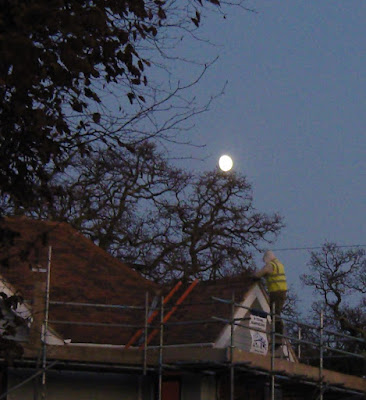Books as Therapy by Sandra Horn
I talk to myself in the shower in the mornings – in my head,
you understand, out loud would be weird. It’s usually fairly mindless chatter,
reminding myself what day it is, etc. but it will be coloured by whatever I’ve
been reading during the EMC (early morning cuppa) before I get up. This morning
it was in the voice of the Russian narrator of Life's Music, yesterday, suave Italian Marco from The Hummingbird. If it was poetry,
the internal monologue might be in iambic pentameters. It’s not a skill – I
just can’t help it. It tends to wear off by the time I'm talking, which is probably just as well, but the mood invoked can last.
A couple of blogs ago, I had a brief online conversation with Peter Leyland via the comments section. He mentioned his interest in bibliotherapy and kindly included a link to a paper he had written about it in the magazine Aeon/Psyche. It contains a fascinating account of his exploration of the impact of reading on mood and wellbeing, with an adult education class. Peter had come across the theory of bibliotherapy, the idea that ‘people engage with literature, not just to escape the familiar world…, nor only for academic purposes , but to ease the pain of existence, of being human.’ He wanted to find out for himself whether there was any truth in the theory. Are there indeed ‘ways to divert and even heal our minds through reading.’ His group of students were not only willing, they entered into the research with enthusiasm and took an active part in shaping the sessions. I am not doing his work full justice, I know, in shortening quotes and paraphrasing, but here is: ‘finding the right book at the right time can have immense benefit for people’s mental and emotional health.’
What has this to do with my morning shower, you could well be asking. It is about the book not only impacting mood but getting right inside one’s head at the level of rhythm, of how the words come off the page, of how they shape thought processes.
However, to go back to the positive side of reading and leave my personal horrors behind, I know how much I owe to ‘the right book at the right time’. The wonderful narrator of Rebecca West’s The Fountain Overflows, from her childhood on, has not only lifted my spirits but given me the sense of all’s basically right with the world even when personal tragedy strikes. Similarly, Jill Paton Walsh’s The Serpentine Cave gives me a warm and hopeful feeling when I need it. I could go on…so many beloved books, too many to mention. And then, of course, poetry. I can’t begin to envisage a world without its power and influence, in sorrows and joys and everything between. It’s like music in those respects, both do something fundamental to the way the brain works. I know I’m always quoting this poem by Robert Frost, but here it is again with all its ability to calm and delight:
Stopping by Woods on a Snowy Evening
Whose woods these are I think I know.
His house is in the village though;
He will not see me stopping here
To watch his woods fill up with snow.
My little horse must think it queer
To stop without a farmhouse near
Between the woods and frozen lake
The darkest evening of the year.
He gives his harness bells a shake
To ask if there is some mistake.
The only other sound’s the sweep
Of easy wind and downy flake.
The woods are lovely, dark and deep,
But I have promises to keep,
And miles to go before I sleep,
And miles to go before I sleep.
What is it about these particular words, this particular rhythm, that works so irresistibly on my mind? I don’t know! I do know that, sometimes, writing poetry also works I a similar way. Here’s one I made earlier:
Release
Hinges groan. Door swings wide. Light. Air. Pause.
Walk. Walk on crunching pebbled shores.
Walk on soft, resistant sand. Walk in the shallows, in seaweed slither.
Seabirds cry, ride the wind. Walk on.
Walk the round-sloped Downs, on Kipling’s sheep-bit thyme,
bee-buzz low, lark-song high. Walk on.
Walk the high fells, on slipping scree, snow on the tops,
breath coming hard, curlew call. Walk on.
Walk in the woods. Leaves whisper, crisp underfoot
burnt umber, rose madder, cinnabar, ochre. Blackbird’s song. Walk on.
Walk on the heath, through scrunching heather, Watch the light change, dim.
White flashes in the dusk. Nightjars churr. Walk on.
Here’s the moon rising, riding high.
Shadows. Silence. Night air cools. Walk on.
It isn't that I think it's great, it's just that, having put it into words, I find it soothing. Why? I am no wiser but more intrigued. Thank you, Peter for the pathway!


Comments
Your poem too is inspiring this morning as I'm preparing for a long plane journey to Vietnam. I know I've read some of yours before but this is a particularly good one, great rhythm like the act of walking itself...